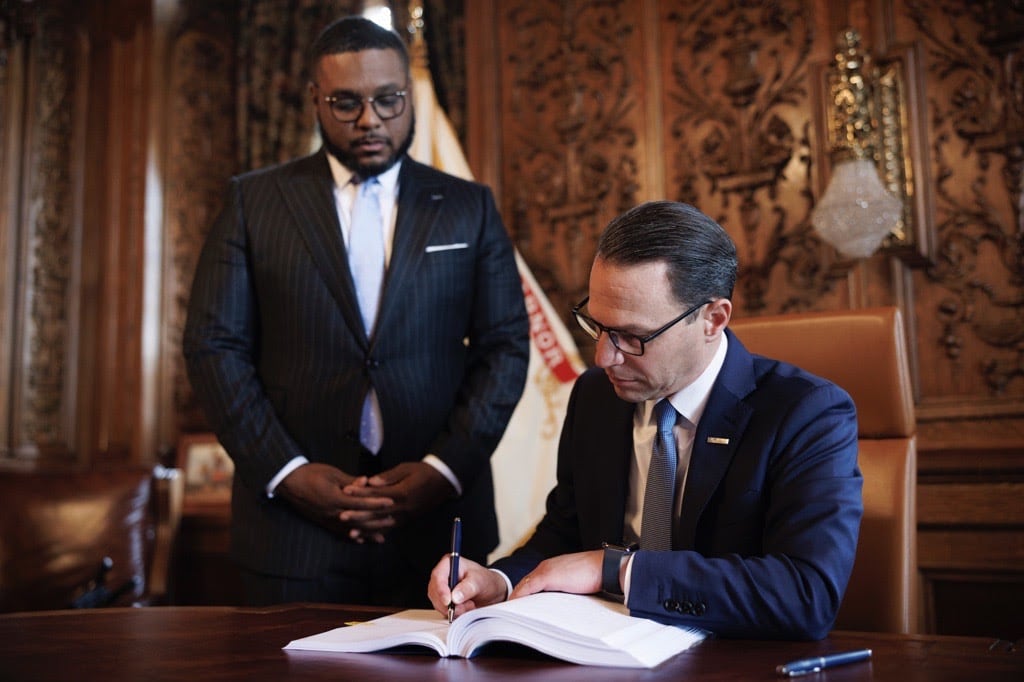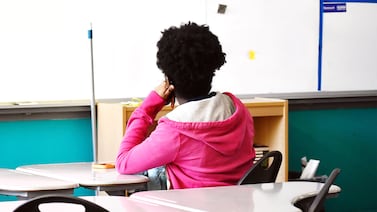This story has been updated.
As promised, Pennsylvania Gov. Josh Shapiro signed the $45.5 billion state budget without a state-funded private school voucher program on Thursday, ending weeks of drama about the proposal.
Budget negotiations had been stalled for nearly a month over the dispute about whether to create a $100 million statewide voucher program. With a one-vote majority in the House, Democrats refused to approve any spending plan that included vouchers — even one supported by Shapiro, a fellow Democrat.
In the end, Shapiro cut a deal to sign the budget and strike the voucher provision, much to the chagrin of Republicans who claimed the governor was turning his back on his own campaign promise.
“The people of Pennsylvania have entrusted me with the responsibility to bring people together in a divided legislature and to get things done for them – and with this commonsense budget, that’s exactly what we’ve done,” Shapiro said in a statement announcing the signing.
In his message announcing that he would use a line-item veto to eliminate vouchers from the budget, Shapiro said the proposal — called the Pennsylvania Award for Student Success Scholarship Program, or PASS — remains “unfinished business.”
“This budget is a first step towards a comprehensive solution that makes progress for our children over the long term, and I look forward to continuing this work with both chambers as we discuss additional programs to help our children including PASS,” Shapiro wrote.
PASS would have expanded the state’s school choice offerings, which currently include the Opportunity Scholarship Tax Credit and Education Improvement Tax Credit.
Critics in Philadelphia claimed that an earlier version of the program could have upended the city’s public school system.
Nathan Benefield, senior vice president of the conservative Commonwealth Foundation that has backed voucher programs, said in a statement Shapiro’s veto “while not unexpected, is disappointing and unnecessary.”
Benefield said his organization will continue to push for vouchers and cast the program as Shapiro’s “chance to redeem himself, fulfill his campaign promises, and offer a genuine opportunity to thousands of low-income kids who deserve a better future.”
Advocates opposing vouchers celebrated Shapiro’s voucher veto, but also expressed disappointment that the Republican-led Senate has yet to approve some education funding.
Among the programs in the budget Shapiro signed Thursday that will still require Senate approval is so-called Level Up funding for the 100 school districts with the lowest spending per pupil, including Philadelphia. Level Up funding is in addition to the Basic Education funding that schools receive from the state and is included in the $45.5 billion budget Shapiro signed.
“It is disappointing that Senate leadership is standing in the way of releasing needed funds for programs included in their own budget, including Level Up dollars that benefit students in the most underfunded school districts,” the PA Schools Work Campaign said in a statement.
The advocates called it “ironic” that Senate Republicans are still holding up “funding for our students in the most underfunded schools specifically because they were unsuccessful in an attempt to institute a new private school voucher program that purports to help ... these very same students.”
Philadelphia Federation of Teachers President Jerry Jordan said in a statement that the union is “pleased” that Shapiro signed the budget without the voucher program.
”The misguided push to divert public dollars into private institutions was a distraction that diverts us from our collective responsibility to truly invest in public education,” Jordan said.
Carly Sitrin is the bureau chief for Chalkbeat Philadelphia. Contact Carly at csitrin@chalkbeat.org.







